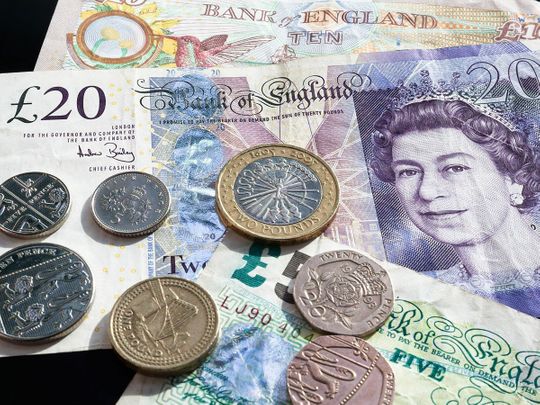
London: The pound will tumble to the lowest level since 1985 if the UK leaves the European Union without a deal, a prospect that looks more likely now than six months ago, according to a Bloomberg survey of analysts.
There is now a 30 per cent chance that Britain will exit the bloc in October without a divorce agreement, the poll of 13 banks showed. That’s more than three times the level from a similar survey in February. Such an outcome would drive down sterling by more than 9 per cent to $1.10, a level not seen in 34 years, according to the median response.
The latest survey also shows that with just under three months until the Brexit deadline, the possibilities remain open. Strategists assign equal probabilities to a no-deal exit, a further delay to the departure date as well as the prospect of a general election being called before Oct. 31. A deal being struck by the deadline is seen as the least likely outcome with just a 15 per cent chance.
“It feels very much that the market is now fully on board with a hard Brexit risk rising and rising,” said Luke Hickmore, a money manager at Aberdeen Standard Investments. “The risk of course is that the smell of a currency crisis will start to rise. I was working in 1992 during Black Wednesday and do not want to see that shambles all over again.”
Sterling tumbled nearly 10 per cent during the week of Black Wednesday in September 1992, when the UK was forced to withdraw from the European exchange-rate mechanism.
‘Moment of Circularity’
The pound has slid almost 7 per cent since the UK deferred the original end-March Brexit deadline, to about $1.2140 on Friday, with investors pricing in higher odds of a disorderly Brexit after the ruling Conservative Party’s leadership contest ended with the election of Brexiteer Boris Johnson. A sterling slump to $1.10 in a no-deal scenario would mark a return to levels last seen during the dollar bull run of 1985.
Should sterling slide toward those levels again, focus will be on how the Bank of England will support the currency — but the central bank said Thursday that it was “highly unlikely” it would intervene. Governor Mark Carney said a change in the value of sterling was “part of the shock-absorbing function”.












